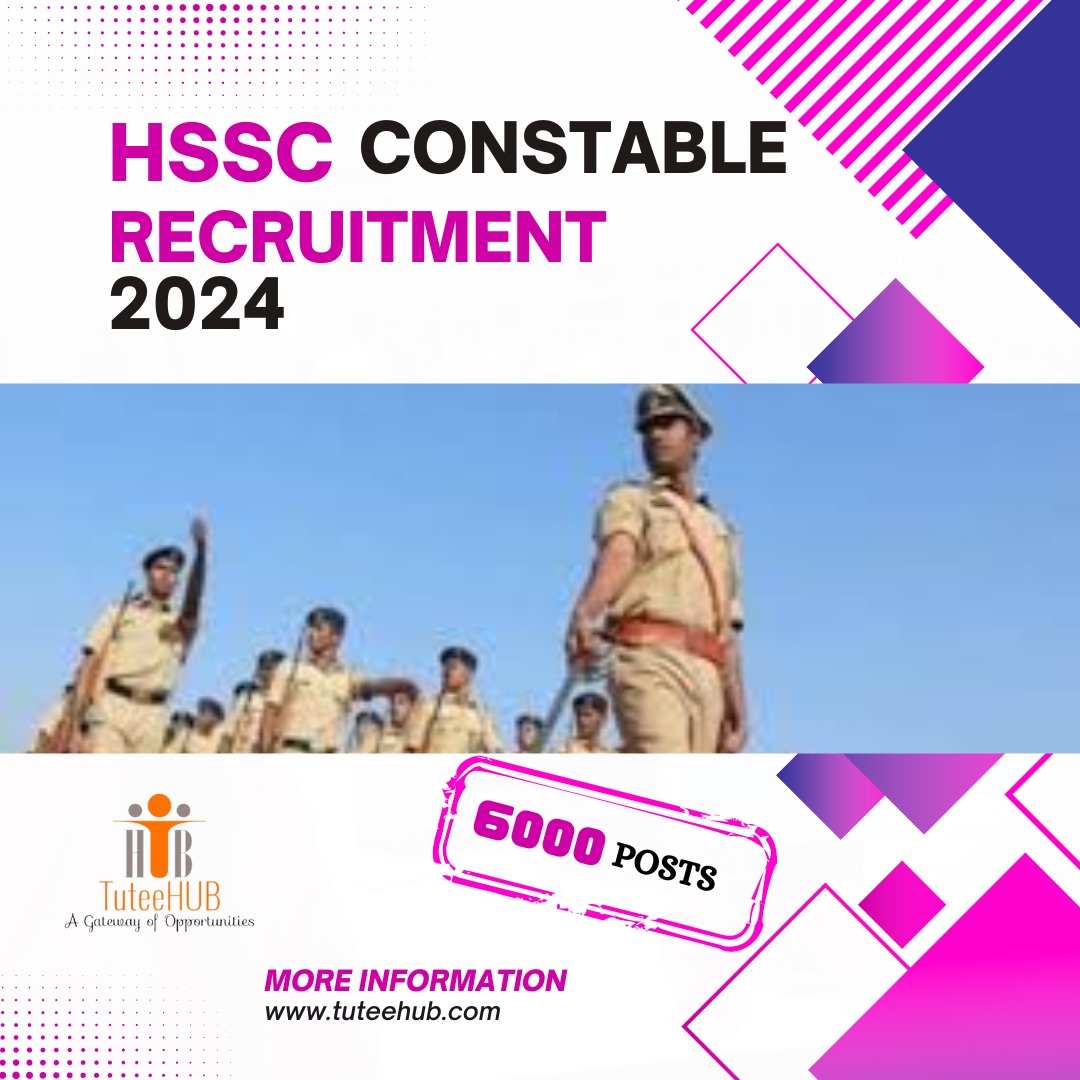Embark on a journey of knowledge! Take the quiz and earn valuable credits.
Take A QuizChallenge yourself and boost your learning! Start the quiz now to earn credits.
Take A QuizUnlock your potential! Begin the quiz, answer questions, and accumulate credits along the way.
Take A QuizHSSC Constable Recruitment Tutorial

Overview
The Haryana Staff Selection Commission (HSSC) is a premier government organization responsible for recruiting qualified individuals for various non-gazetted posts in the Haryana state administration. Established in 1970, HSSC conducts multiple recruitment drives throughout the year to fill vacancies in various departments and agencies under the Haryana government. The commission's primary mission is to ensure fair and transparent selection procedures, adhering to merit-based principles.
Eligibility Criteria for the Constable Post
To be eligible for the Constable post in the HSSC recruitment process, candidates must meet the following criteria:
- Nationality: Applicants must be Indian citizens.
- Age: Candidates must be between 18 and 25 years of age as on January 1st of the year of application. Age relaxation is applicable for certain categories as per government norms.
- Educational Qualification: Candidates must have passed the 12th standard or equivalent examination from a recognized board or university.
- Physical Standards: Candidates must meet the prescribed physical standards for height, weight, and chest expansion as stipulated by HSSC.
- Physical Fitness: Candidates must be physically fit and capable of performing the duties of a Constable. They must be free from any physical defects or ailments that may hinder their performance.
Selection Process Stages
The HSSC Constable recruitment process consists of three distinct stages:
Stage 1: Written Examination
- The written examination is the first stage of the selection process.
- It comprises objective-type questions covering various subjects, including General Knowledge, Mathematics, Hindi, and English.
- Candidates must secure the minimum qualifying marks in the written exam to proceed to the next stage.
Stage 2: Physical Efficiency Test (PET)
- The PET is a physical test designed to assess the candidate's physical fitness and agility.
- Candidates must complete a series of physical exercises within the prescribed time limits.
- Only candidates who qualify in the PET will proceed to the final stage.
Stage 3: Document Verification
- The final stage involves the verification of original documents to confirm the candidate's eligibility and authenticity of information provided in the application form.
- Candidates must submit original certificates and documents related to age, educational qualification, caste, physical standards, and other relevant details.
- Successful candidates who clear the document verification process will be issued an appointment letter by HSSC.
Additional Information
- HSSC releases official notifications announcing the Constable recruitment drive, providing detailed information about the eligibility criteria, syllabus, exam pattern, and other relevant aspects.
- Candidates are advised to carefully read and understand the official notification and apply accordingly.
- The recruitment process is highly competitive, and candidates are encouraged to prepare thoroughly to enhance their chances of success.
- HSSC may conduct additional stages in the selection process, such as medical examination or interviews, as deemed necessary.
- Candidates are advised to stay updated with the latest news and announcements from HSSC's official website for any relevant updates or changes in the recruitment process.
FAQs
Q: What is the eligibility criteria for the HSSC Constable post? A: Indian citizenship, age between 18-25 years, 12th standard pass, prescribed physical standards, and physical fitness.
Q: What is the selection process for HSSC Constable? A: Written examination, Physical Efficiency Test (PET), and document verification.
Q: What subjects are covered in the written examination? A: General Knowledge, Mathematics, Hindi, and English.
Q: What is the minimum qualifying marks in the written exam? A: The minimum qualifying marks vary depending on the category of the candidate.
Q: What is the physical test like? A: The PET assesses physical fitness and agility through exercises like running, jumping, and push-ups.
Q: What documents are required for document verification? A: Original certificates related to age, educational qualification, caste, physical standards, and other relevant details.
Q: How can I apply for the HSSC Constable post? A: Apply through the HSSC official website when the recruitment drive is announced.
Q: What is the age relaxation for the HSSC Constable post? A: Age relaxation is applicable for certain categories as per government norms.
Q: Is physical fitness necessary for the post? A: Yes, candidates must be physically fit and capable of performing the duties of a Constable.
Q: What is the duration of the training period after selection? A: The duration of the training period will be provided in the official notification.
Start TutorialPosted on 23 Sep 2024, this text provides information on HSSC Constable Recruitment. Please note that while accuracy is prioritized, the data presented might not be entirely correct or up-to-date. This information is offered for general knowledge and informational purposes only, and should not be considered as a substitute for professional advice.
Similar Tutorials

Advanced Excel Charts Tutorial: How to Create Prof...
Learn how to create professional charts in Excel with our advanced Excel charts tutorial. We'll show...

Advanced Excel Functions: Tips and Tricks for Boos...
Are you tired of spending hours working on Excel spreadsheets, only to find yourself stuck on a prob...

Apache Flume Tutorial: An Introduction to Log Coll...
Apache Flume is a powerful tool for collecting, aggregating, and moving large amounts of log data fr...
Explore Other Libraries
Related Searches
Please allow ads on our site
Please log in to access this content. You will be redirected to the login page shortly.
Login
Join Our Community Today
Ready to take your education and career to the next level? Register today and join our growing community of learners and professionals.

Your experience on this site will be improved by allowing cookies. Read Cookie Policy
Your experience on this site will be improved by allowing cookies. Read Cookie Policy


Comments(0)